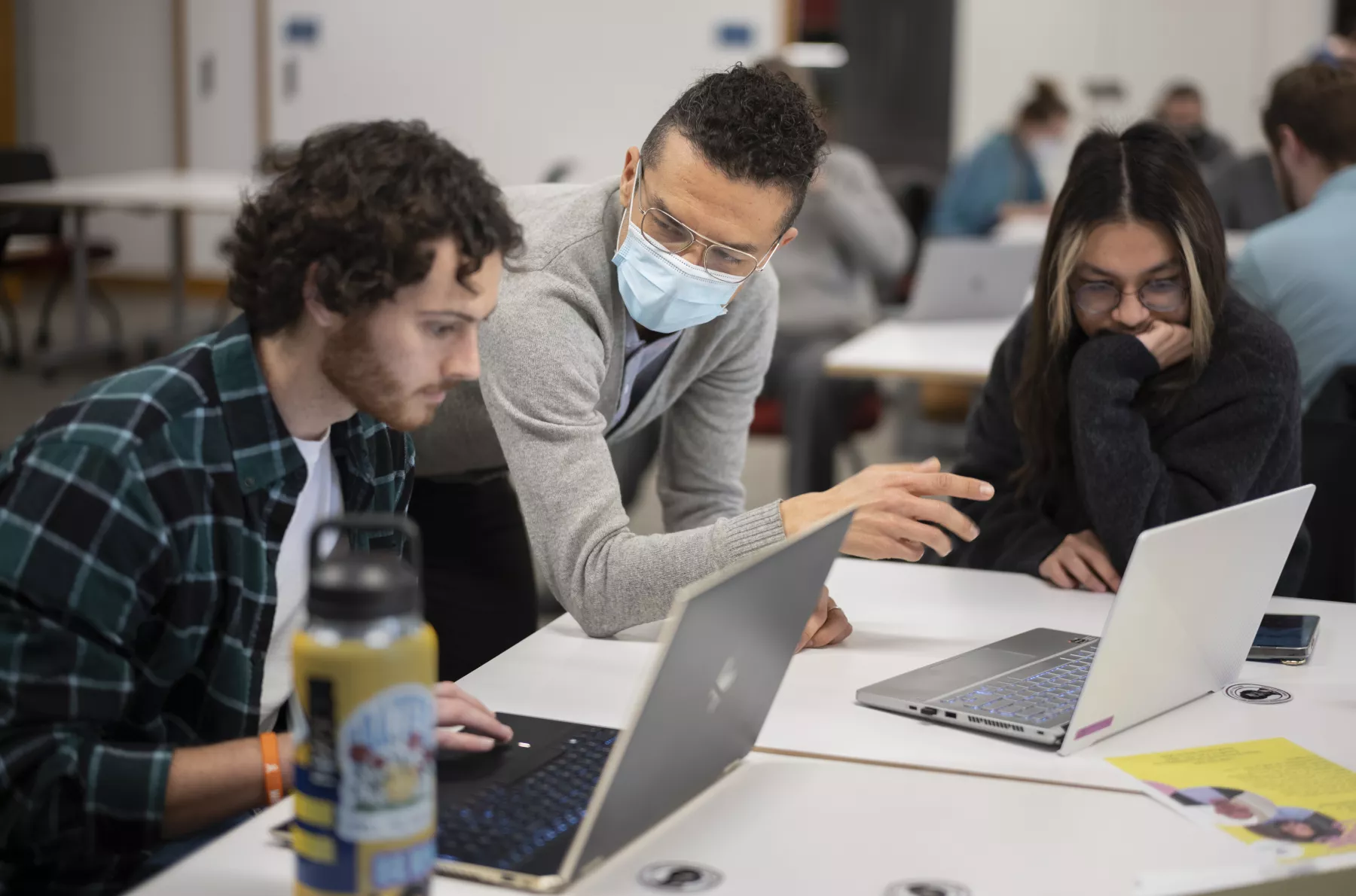- First Year Seminar Class Visits
New student orientation provides only the most basic of introductions to the libraries. We try and build upon students' initial exposure by visiting First Year Seminars, regardless of whether or not they have a library assignment. Professors of FYSs are encouraged to contact their subject librarian to arrange a class visit. Librarians try to help students transition to the academic library by introducing the fundamentals of research, such as an understanding of call numbers, locations, and basic Tripod search methods.
- Multiple Instruction Sessions
For some courses, it may be desirable to have the librarian instruct more than once. These sessions can provide the student with a deeper understanding of disciplinary research strategies, as well as more detailed instruction on complex searching techniques.
- One-time Instruction
Usually connected with a specific research assignment, these sessions can provide a useful introduction to core disciplinary resources, specific strategies for searching particular databases, and other higher level research skills. These sessions are tailored to specific course content and typically consist of a combination of lecture, group brainstorming, practice questions, role playing and worksheets. Instruction sessions may be held either in your usual classroom or in a classroom in one of the library buildings. We prefer to have a faculty member present at these sessions.
- Individual Consultations
Faculty may encourage or require students to meet individually with a librarian during the process of completing an assignment. This method successfully meets the specific needs of students with varying degrees of information fluency. Individual meetings with a librarian can be a great way for students to learn about resources and services such as Zotero and EndNote Web, specialized databases, and special collections.
Students can book an appointment with a librarian. Contact your subject librarian for more information.
- Thesis and Capstone Support
For students beginning their senior research project, the Library suggests a combination of a class visit followed by individual appointments with the librarian. Students can book an appointment with a librarian and apply for a senior thesis carrel in McCabe Library. The libraries also maintain a digital repository of student thesis work.
Contact your subject librarian to discuss support for your students.
- Special Collections Materials
Swarthmore College is lucky to have a Special Collections department that is robust, topically diverse, and information-rich.
Special Collections instruction sessions emphasize interactive opportunities to learn and practice skills like visual analysis, interpretation, locating and navigating archival sources, transcription, map-making, and more.
The department has also created a number of mobile Teaching Collections, containing specimens of various formats (such as historical photograph types), faculty may borrow for classroom use.
Learn more on the Special Collections page of the Libraries' website and contact Celia Caust-Ellenbogen, Associate Curator, to schedule instruction sessions, or to discuss options for asynchronous projects, or class-wide access to collections materials.
- Digital Scholarship Consultations
At Swarthmore, our librarians can help you design, integrate, and evaluate digital scholarship methods and tools into your research and teaching. As you grapple with the theoretical and practical questions surrounding Artificial Intelligence, social media, and algorithmic bias, we can help students find resources and guide discussions in these areas. The Digital Scholarship Librarian, as well as the Tri-Co Digital Scholarship team, has expertise in social annotation, immersive technology, digital publishing, text analysis, and data mining and curation - just to name a few! We can create custom workshops for your class using library resources and work one-on-one with students on building digital literacy skills through the use of our library collections. Contact digitalscholarship@swarthmore.edu or reach out to Amanda Licastro, Digital Scholarship Librarian, about building a website, digital exhibit, or interactive timeline for your pedagogical or research projects!
- Course Guides and Research Guides
Instructional staff can request a guide, either to a broad subject area or for a specific course, be prepared at any time. These guides are available in our Research Guides, and can be linked to from Moodle. Guides for courses currently not being taught remain accessible so that students can easily return to resources they have used before. When librarians are invited to teach a class they will usually prepare a course guide as well.
- Workshops
The Library also offers occasional workshops on popular topics in information literacy. These events are usually held in the McCabe Library at a time convenient for students, such as late afternoon or evening. Bibliographic managers, streaming media, and Mango Languages have been recent topics. Workshops will be posted on the Campus Calendar.
- Exhibit Curation
The Library gives priority to classes or individual students interested in curating an exhibit, either in the main exhibition area or one of the auxiliary exhibition spaces. Past examples of exhibits include Wildly Human: Beyond the Bestiary, Crafting Nature: The Art of the Japanese Tea Ceremony, and Sex, Action, and Social Commentary: Pulp Magazines in America. The curation process provides students with an opportunity to further develop their information and visual literacies, as well as their knowledge of the subject content. Contact Susan Dreher, Visual Resources and Exhibitions Librarian, or your subject librarian to learn more.
For more information or to schedule a library instructions session, please contact your Subject Specialist.




